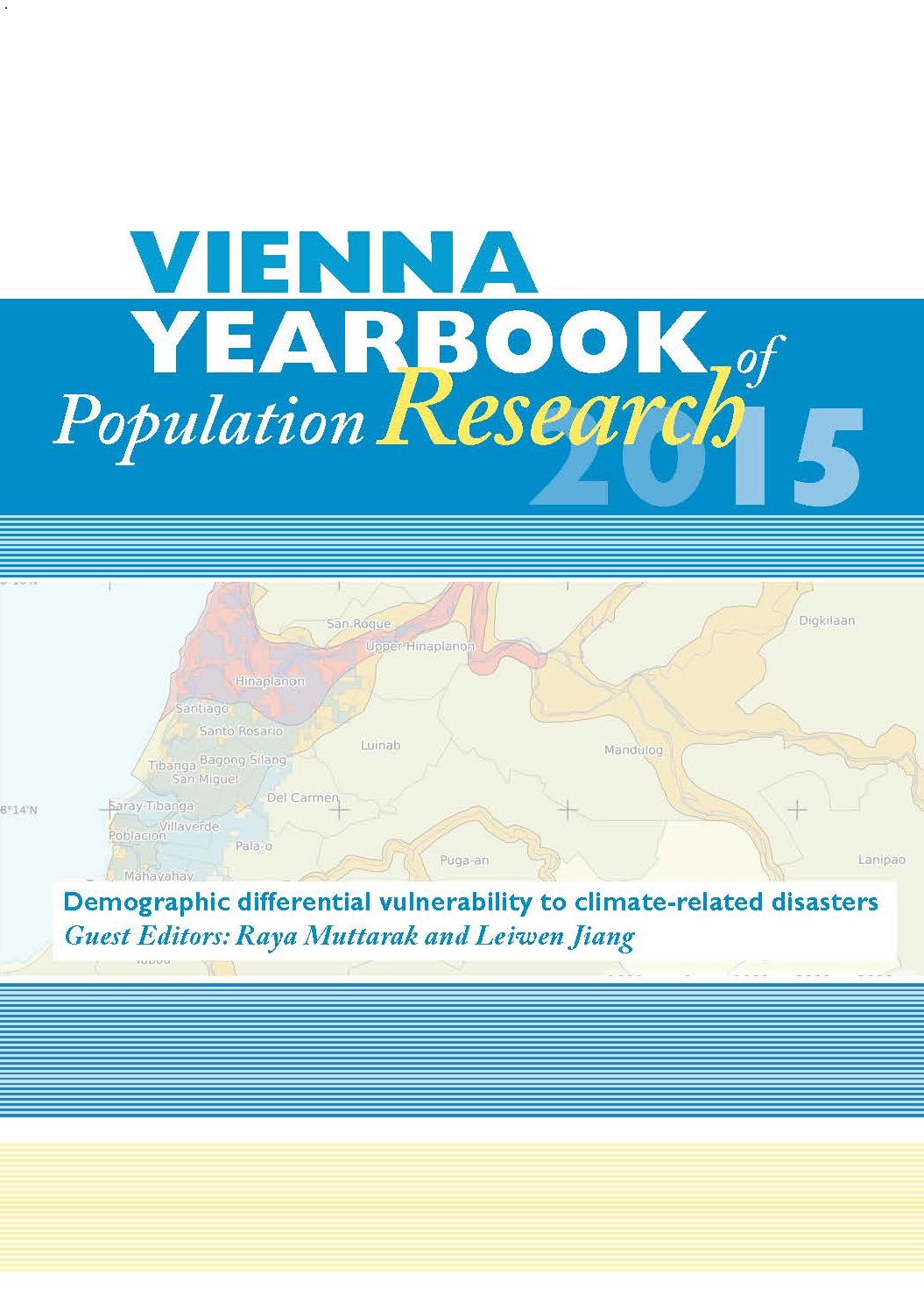
Vienna Yearbook of Population Research 2015, pp. 91-129, 2024/12/12
Special issue on Demographic differential vulnerability to climate-related disasters

As global warming and climate change predictions become increasingly certain, there is mounting pressure to gain a better understanding of disaster risk. Climate change is seen as a major contributing factor in the recent increases in the losses and damages attributed to hazard extremes. Vulnerability is one of the key components of risk. Yet identifying who the vulnerable segments of the population are, and to which specific hazards different groups are vulnerable, remains a challenge. Measuring social vulnerability has become an active area of research, with scholars attempting to capture the differential vulnerabilities of the population exposed to certain hazards. To address these research challenges, we developed in this study social vulnerability indices at the most basic level of governance in the Philippines using raw, individual-level census data for the entire country. Our goal in conducting this research is to establish relationships between the derived vulnerability measurements and flood exposure and the impacts of coastal flash floods triggered by Tropical Storm Washi in the southern Philippines in December 2011. We find that exposure rather than vulnerability appears to play a greater role in the magnitude of the losses and damages resulting from this particular type of hazard at the localized scale.
Keywords: Demography; Environment; Climate Change; Philippines